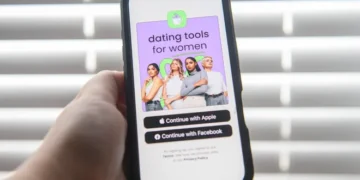Russia has passed a new law to develop a government-backed messaging app as a WhatsApp-Telegram alternative, aiming to boost digital sovereignty and reduce reliance on foreign platforms.
In a significant step toward digital independence, Russian President Vladimir Putin has signed a new law approving the launch of a state-supported messaging app. Designed to serve as an alternative to global platforms like WhatsApp and Telegram, the app will connect directly with government services and enhance user engagement with local technology.
According to a report by Samaa TV on June 24, Russia has long been working toward what it calls “digital sovereignty.” The goal is to build and rely on homegrown technologies and platforms rather than those controlled by foreign powers.
The push intensified after Western tech companies began pulling out of Russia following the Ukraine invasion in February 2022. As a result, Moscow’s need for domestic tech solutions has become even more urgent.
Russian lawmakers claim that this new state-run messaging app will offer features that platforms like Telegram or Meta’s WhatsApp do not. However, critics argue that a government-controlled platform may pose a threat to user privacy and personal freedom.
Read More: Stock Market Split: Dhaka Stocks Up, Chattogram in the Red!
Mikhail Klimarev, director of Russia’s Internet Protection Society, warned that the government might intentionally slow down internet access to WhatsApp and Telegram to encourage people to switch to the new state app.
Meanwhile, similar concerns over messaging app security are also echoing in the United States. On Monday, the U.S. House of Representatives issued a ban on using WhatsApp for official communications.
A memo sent to all House staff stated that the Cybersecurity Office had flagged WhatsApp as a high-risk application. The reasons cited include lack of transparency about data protection, insufficient encryption practices, and potential cybersecurity vulnerabilities.
Instead, House staff were advised to use alternatives like Microsoft Teams, Amazon’s Wickr, Signal, Apple’s iMessage, and FaceTime.
Meta, the parent company of WhatsApp, strongly criticized the decision. The company claimed that WhatsApp actually offers stronger security than many of the apps that were approved.
Earlier in January this year, WhatsApp revealed that Israeli spyware firm Paragon Solutions had allegedly targeted several users including journalists and members of civil society—for surveillance purposes.
As for Russia’s upcoming messaging app, no official launch date has been announced yet. However, many analysts believe the move reflects another layer in Russia’s digital surveillance strategy, packaged under the banner of national sovereignty and data security.
Share via:


















